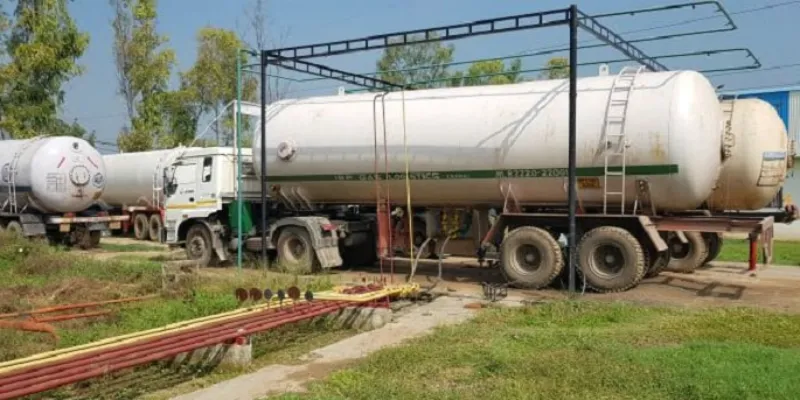Despite challenges, Haryana-based IBP aims to be top LPG pvt player in India
Thirty two-year-old Manjeet Singh Duhan, an LPG dealer, was two years into his profession when he realised there was a very limited growth in the segment.
He says, “With LPG dealership, I was just restricted to a single district. I wanted to expand throughout India and the opportunities were limited.”
As a result, Manjeet decided to cash in on his experience and advance towards the production of LPG. For this, he collaborated with two partners, Rajesh Kumar and Rakesh Chhokar, who were also into the LPG dealership business, and started Indo Bright Petroleum Pvt Ltd. in Karnal, Haryana in 2013, with an investment of Rs 3.5 crore.
They set up their first LPG plant called Indo Bright Petroleum (IBP) in Karnal and began its commercial production in 2015. It currently has a turnover of Rs 18 crore.
Manjeet says, with a network of 400 dealers and sales offices in Haryana, Punjab, Bihar, Gurugram and Delhi, today IBP is the biggest private player in LPG bottling in North India.
Talking about the company’s operations, Manjeet says, “We buy propane and butane from government and private entities and blend it in appropriate proportions, fill it into cylinders and then distribute it in the market for both domestic and commercial use.”

Indo Bright Petroleum manufacturing plant in Karnal, Haryana
According to him, there’s a huge demand for LPG in both commercial and domestic domains. But since it is a service-based product, one has to deliver it on time. In order to gain the customers’ trust and to avoid theft, IBP uses an aluminium seal on its cylinders and has a dedicated software to deal with the customer complaints.
According to industry reports, the projected demand for LPG for the year 2018-19 will be 24 million tonne, around 20 percent more than 2017-18.
While acknowledging the fact that a huge demand signals good prospects for any business, Manjeet also appears wary of the government’s intervention in the recent times, which according to him is putting private players at a massive disadvantage. He says, since the government started the Ujjwala Yojana and Direct Benefit Transfer (DBT) scheme, their sales have taken a 50 percent hit.
“Before Ujjwala Yojana, our company was giving a gas connection for Rs 2,500, while the government’s connection was priced at Rs 6,000. But after the Ujjwala scheme, the government is giving free connections to nine crore people and private players like us are not allowed to give connections under the scheme. The marketshare was snatched away from us straight away,” he says.
While Manjeet sees no harm in giving relief to citizens through LPG subsidy and free gas connections, he says it is unfair to allow only government-owned companies to be participants in such schemes.
Manjeet further explains on how schemes like DBT are causing them losses. “If you buy a cylinder from Bharat Gas or HP, you are entitled to a subsidy of Rs 500. But, if you buy ours, you’re not entitled to a subsidy. This puts us at a disadvantage,” he adds.
According to Manjeet, there should be a level-playing field and the aim of the government schemes should be the welfare of the people and not the welfare of government companies. “If they are running in losses, they should be closed,” he says..
To counter these challenges, Manjeet says they are focussing more on the commercial sector now. “Our LPG cylinders cost much lower than those sold by the government and other private players. This gives us an edge.”
In the future, Manjeet aims to be the number one LPG private player in India. “To achieve this, apart from expanding production units, creating a vast dealer network will be the key,” he says. IBP in the near future is also planning to start its own petrol and diesel pumps.
When asked about the learnings from his business journey, he says: “Experience can save one from big losses. And experience comes after facing big losses. One should not get bogged down after facing a loss, instead should move ahead and work hard.”
(This story is published in partnership with the MSME Ministry to showcase success stories of SMEs)







